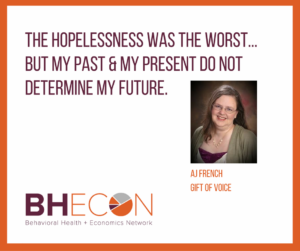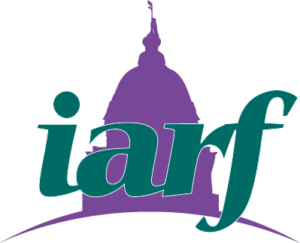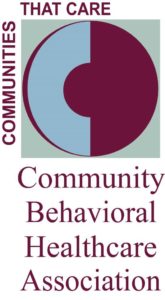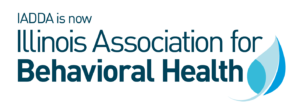On August 30 behavioral health providers and consumers joined state health agency officials for a discussion on the state of Illinois behavioral health system.
Expanding Access to Behavioral Health Care in Illinois through Medicaid Transformation

Attendees learn about Illinois proposed Medicaid transformation waiver
As Illinois embarks on a transformation of its Medicaid system, the state has the opportunity to fundamentally improve health care delivery services. A growing body of research highlights the critical role of behavioral health services in promoting overall health and lowering health system costs, making the Medicaid waiver an ideal venue to explore ways to bolster the provision of mental health and addiction care in the state. Unfortunately, far too few Illinois residents have access to the services they need, and the burden of untreated mental health conditions falls on emergency departments, jails, prisons, child welfare systems, schools, communities, and families.
On August 30, the Community Behavioral Healthcare Association, the Illinois Association of Rehabilitation Facilities, and the Illinois Association for Behavioral Health, in partnership with the Behavioral Health + Economics Network (BHECON) led by the National Council for Behavioral Health, hosted a forum to explore these pressing issues. Attendees discussed the need for policy reforms that ensure: access to care at all stages (including prevention and early intervention), a full range of treatment options and care settings for individuals with acute, chronic and mild needs, specialized services available to children and adolescents, and services for co-occurring mental health and addiction issues.
Illinois’ Medicaid Transformation Waiver: Our Vision and Goals
Secretary of Health Services James Dimas provided an overview of the current state of behavioral health care in Illinois, pointing out that too many resources in Illinois are invested in the later stages of treatment.
40% of behavioral health spending in Illinois’ Medicaid program goes to inpatient care. Utilization of psychiatric hospitals in Illinois is 44% higher than the national average. –Secretary Dimas
Secretary Dimas noted that 25% of individuals participating in Medicaid have behavioral health issues and account for more than 50% of program costs. Secretary Dimas explained that the Medicaid waiver proposal will improve enrollees’ outcomes by expanding supportive housing services, decreasing usage of emergency services, increasing crisis intervention services, and improving telehealth and tele-psychiatry services. Through these investments in supportive services and an emphasis on prevention and early intervention, Illinois hopes to incentivize a population health approach to care.
Where are We Now? Where do We Need to Go? A Community Provider Perspective

“I often ask my GPS: where are we going? Well, we’ve got our own GPS panel up here.” Marvin Lindsey (CEO of CBHA) introduces clinic executives Heather O’Donnell (Thresholds), Joel Johnson (Human Services Development Institute), and David Gomel (Rosecrance).
In reviewing the current state of behavioral health care in Illinois, a panel of executive leaders from community behavioral health organizations agreed that the state’s ongoing budget impasse has created a precarious situation for providers, who are worried about the future of funding and their ability to continue providing services. The panelists expressed cautious optimism that the proposed 1115 waiver could lead to improved investments in the behavioral health system by supporting services along the entire continuum of care from prevention to treatment.
Reimbursement rates are a key challenge for all the organizations represented on the panel; each speaker pointed out that current rates are insufficient to cover the costs of services and force the organizations to cobble together funding from multiple sources simply to keep their doors open. The panel discussed how different payment models impact the structure of their clinics and the way in which staff can provide treatment. They discussed the merits of fee-for-service, value-based payments, and the prospective payment system (PPS) proposed for Certified Community Behavioral Health Clinics under the Excellence in Mental Health Act demonstration. All panelists expressed their disappointment that the state was sharply limiting clinics’ participation in the demonstration, pointing out that the PPS structure would allow them to receive reimbursement that covers their anticipated costs of doing business.
Patient-Centered Transformation: A Consumer/Advocate Perspective
The second panel discussion brought together behavioral health consumers and family members to share their experiences accessing services in the Illinois behavioral health system. Panelists agreed that Illinois needed a better safety net for children who age out of the system, for individuals leaving prisons, and general community support systems like WHAM (Whole Health Action Management) and WRAP (Wellness Recovery Action Plan). The individuals with lived experience stressed the critical role that community-based treatment plays for individuals experiencing a mental health crisis.
“What we need in the system is more wellness,” said panelist John Holley. “That requires not just more care, but different tools than we’ve used in the past.”
The panel also discussed the importance of consumer advisory panels in any policy reform process. They stressed that the behavioral health system needs to accommodate a full continuum of care targeted towards’ consumers’ needs at any given moment: mental health care needs to be available throughout a person’s lifetime and readily accessible.
Thank you to the sponsors:






